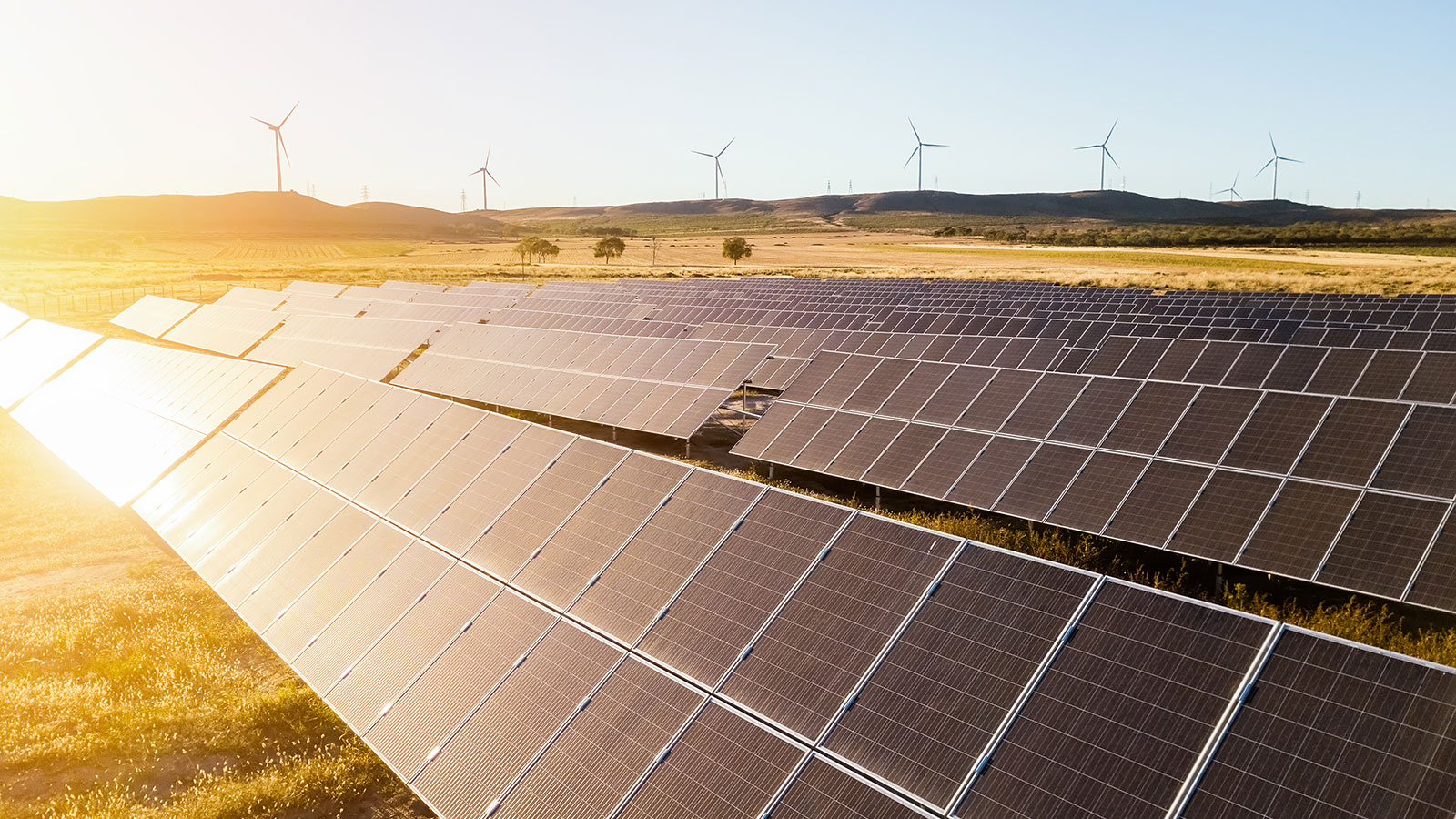Sometimes, the myriad of ways in which we could reduce our environmental footprints can feel like, well, a lot. Meal-planning down to the last crumb to curb food waste, ditching your car, heck, even weighing bamboo vs. a boar bristle toothbrush. Is there anyone who doesn’t feel at least a little overwhelmed when they calculate their carbon offsets or attempt to forgo as much plastic as possible?
Synching your home or apartment utility bill with a renewable energy supplier is one “set-it-and-forget-it” way of staving off climate-related anxiety while helping support the clean energy industry. But first, here’s a bit about energy and your electricity.
All of our electricity, whether it’s created by a wind farm or a coal-fired power plant, winds up swirling about in a massive power grid. This shared grid keeps our homes aglow and continuously running on power. Unfortunately, once it has been added to the grid there’s no way of differentiating between electricity that’s been generated by renewable sources or by emissions-driving fossil fuels. Therefore, each time a wind farm or other renewable energy source adds one megawatt-hour of electricity to the grid, a Renewable Energy Certificate (REC) is also created, which represents the environmental attributes of the electricity being generated.
In restructured or “energy choice” states and the District of Columbia, consumers are allowed to choose their energy supplier, and can help support the development of clean renewable energy like wind and solar by sourcing their electricity from clean energy suppliers. These companies supply energy from the grid and match their customer’s usage with RECs.
Electricity supplier CleanChoice Energy buys RECs from solar and wind farms located in the same regions as their customers, sending even more positive vibes rippling throughout the community by boosting the local renewable energy sector, and creating cleaner air close to home.
Washington, D.C., New Jersey, and Massachusetts — three of the nine places served by CleanChoice Energy — are examples of areas where renewable power is taking off at a state level, and where homeowners (and even renters) can support clean energy.
Washington, D.C., was designated the first LEED Platinum city in the world in 2017 for its ambitious sustainability goals, and programs like the district’s Solar for All project is on track to serve 100,000 homes by 2032. The District made even greater strides toward running on renewables by passing an ambitious bill that requires 100 percent of energy sold in the District to come from renewable sources by 2032. The bill has been touted as “the most aggressive and impactful clean energy goal passed by any state to-date” by the D.C. Department of Energy and Environment.
New Jersey is an official member of the “50X30 club,” joining a handful of other-states that have pledged to source 50 percent of their energy from renewable sources by 2030. Much of that power is slated to come from offshore wind farms situated off the coast of the Jersey Shore, part of Governor Phil Murphy’s target of generating 3,500 megawatts in wind power within the next 11 years, or about a third of the state’s electricity, by some estimates.
In Massachusetts, the state’s largest community solar farm just opened for business. CleanChoice Energy’s new solar installation, the Happy Hollow Community Solar Farm, allows individuals to support clean energy in their communities.
No matter where you live, renewable energy is growing fast in the U.S. as more people demand it over fossil fuels.
Want to do something about climate change? Can’t or don’t want to install rooftop panels on your home? Supporting clean energy is now easy—it’s all about your electricity.
CleanChoice Energy empowers people and businesses to cut emissions, support renewable energy, and live cleaner lives. CleanChoice Energy is a “Best for the World” Certified B Corporation, a member of the American Sustainable Business Council and the U.S. Green Building Council, and is certified with the highest available rating by Green America’s Green Business Network. For more information or to become a customer, visit CleanChoiceEnergy.com.
The above is a paid partnership between CleanChoice Energy and Grist and is for informational purposes only. Grist is not offering renewable energy advice nor endorsing any specific type of home renewable energy systems.
Here at Grist, you know what we like almost as much as solar panels? Partners! They help us keep the lights on so we can keep bringing you the best and most Gristy journalism on the planet. Click here for more information.




